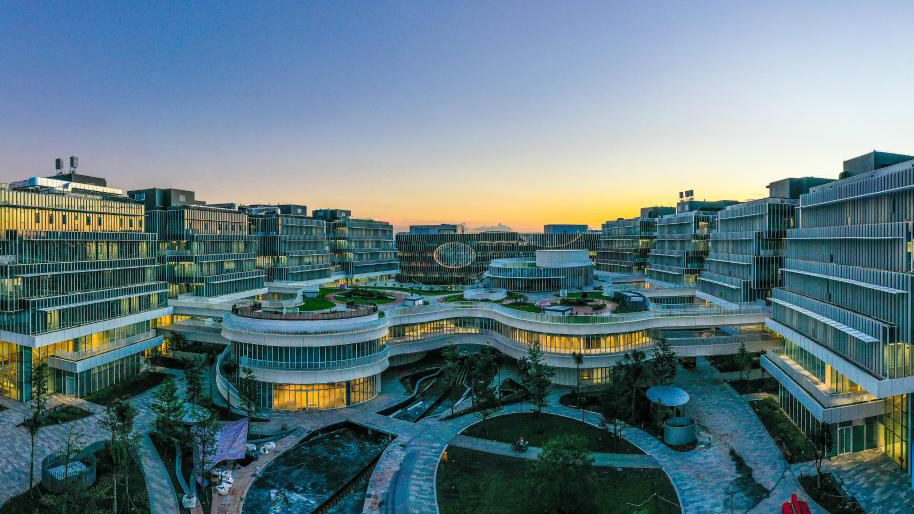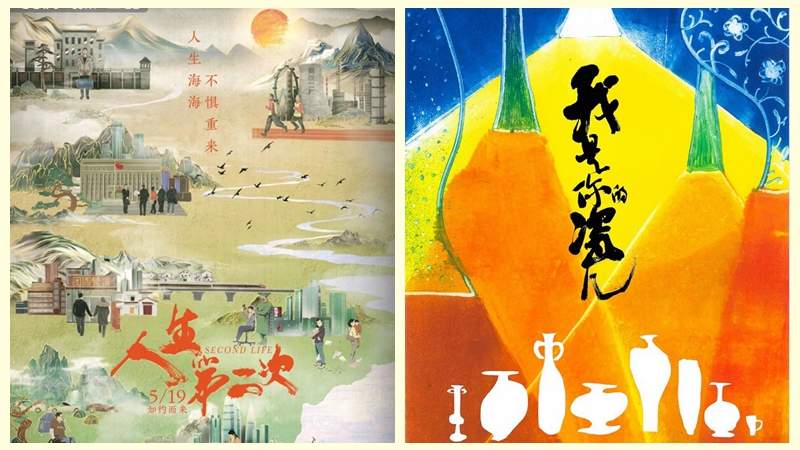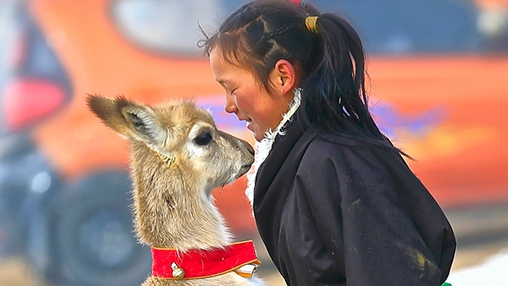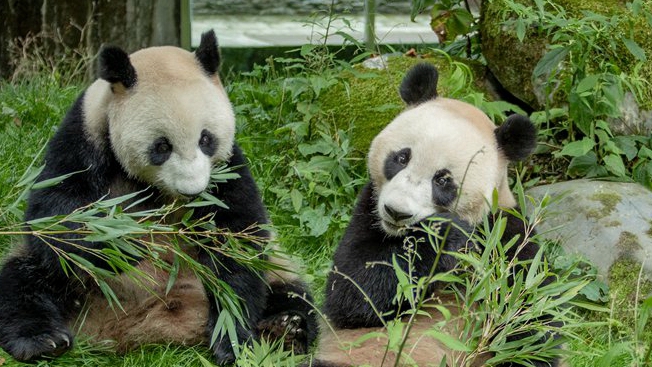Feature: Botswana's Chinatown showcases thriving China-Africa trade
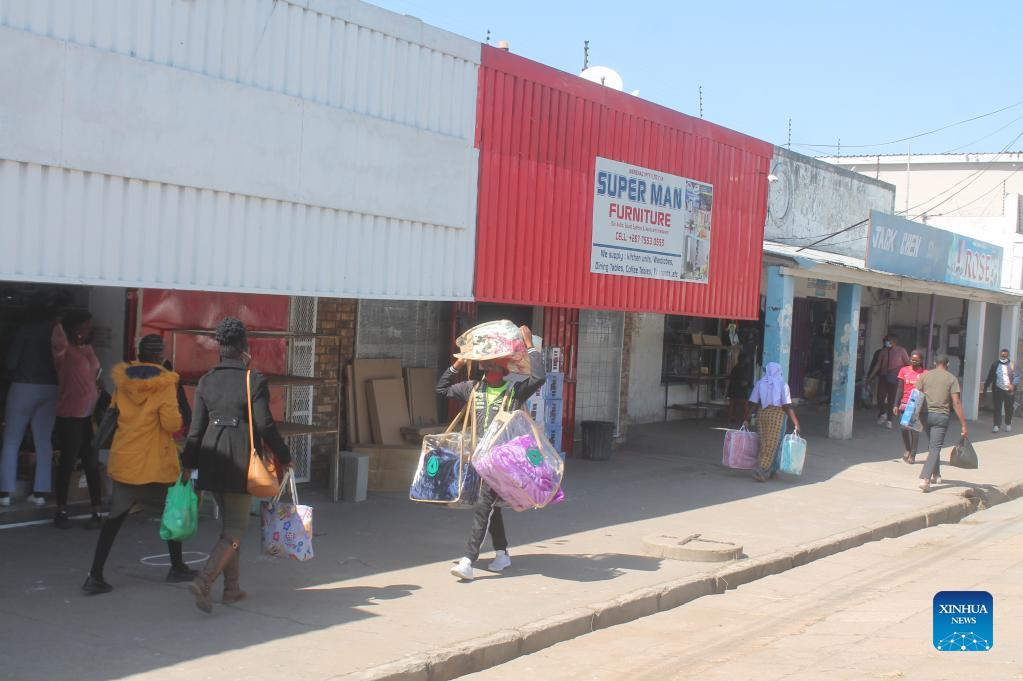
People are seen in Haskins Street laden with Chinese products in Francistown, Botswana, on July 28, 2022. (Xinhua/Shingirai Madondo)
GABORONE, Aug. 18 (Xinhua) -- When 45-year-old Zhen Xiaojuan from east China's Fujian Province left to start her business in Botswana some 15 years ago, little did she know her goods would sell beyond the borders of the southern African country.
Haskins Street in Francistown, Botswana's second-largest city, where Zhen's shop is located, has now become one of the most popular streets in the country.
From dawn to dusk, a myriad of Chinese-made products sold in the street attracts scores of citizens and wholesale shoppers from Botswana and neighboring countries, as far as Zimbabwe, Zambia, Malawi and Lesotho. From clothes, furniture, house fittings and bicycles to electronic items like television sets, radios and mobile phones and motorbikes, the Chinese-made imports have offered Batswana affordable and quality options.
"Chinese-made products have won the hearts of Batswana, Zimbabweans, Zambians and Basotho (citizens of Lesotho). And we are setting up a mini Chinatown here in Francistown," Zhen told Xinhua in an interview, who sells clothes, shoes, duvets, jewelry and beauty products.
A few Chinese businesspeople, mainly from Fujian Province on the east China seaboard, had first started their business ventures in Francistown, about 430 km northeast of Gaborone, Botswana's capital, around 2005. In the following years, however, the Chinese business community has gradually grown in small numbers, she said.
Weng Yongbiao, the chairperson of the Francistown Chinese Chamber of Commerce, said at least 70 members have signed up their membership with the chamber.
"But we are expecting more to come to Francistown to operate businesses. This is being fostered by the ever flourishing China-Botswana bilateral relations," said Weng, adding that the people of Botswana are friendly and have made it easy for Chinese merchants to use Botswana as a launch pad for Chinese-made products to reach other countries.
China-Africa trade last year reached an all-time high, showing resilience amid the COVID-19 pandemic, according to the latest data released by the General Administration of Customs of China.
The latest data showed that total bilateral trade between China and Botswana in 2021 reached 428.1 million U.S. dollars, up 32.6 percent year on year, with Botswana exporting 172.6 million dollars of goods to China, up 97.3 percent year on year.
Tafadzwa Mathambo, an economics lecturer at Gaborone University College of Law and Professional Studies, attribute the love for Chinese goods by people of many countries neighboring Botswana to their affordability and quality.
"Chinese brands are embraced because they are affordable and of good quality," said Mathambo, adding that with incomes shrinking for some people and stagnating for others, the Chinese goods are offering good bargains to consumers and jobs to the sellers.
Ellen Zimuto, a Zimbabwean buyer, said she travels to Botswana twice a month to buy goods wholesale for resale in Bulawayo, the second largest city of Zimbabwe, where she owns a shop. "I have created an employment opportunity for three people who work at my shop while I am traveling to buy more goods," said Zimuto.
Besides those working in shops, some locals like Tinny Mothobi have found a niche in food vending just adjacent to the lane of shops owned by the Chinese nationals. She said she serves mostly Zimbabweans and Zambians who come to buy Chinese products with breakfast and lunch.
"I am very grateful to these Chinese because if it was not for them, I would not be able to sell food because our population is too small," she said.
Botswana's population is estimated at 2,346,179, according to the 2022 population and housing census conducted by Statistics Botswana.

Wholesale shoppers are seen by a shop in Haskins Street laden with Chinese products in Francistown, Botswana, on July 28, 2022. (Xinhua/Shingirai Madondo)
Photos
Related Stories
- China to facilitate quality African food, agricultural imports: spokesperson
- China urges support for Africa to enhance capacities
- China's Hunan explores local currency settlement for trade with African countries
- China, Africa work to build security community
- Chinese defense minister urges enhanced China-Africa peace, security cooperation
Copyright © 2022 People's Daily Online. All Rights Reserved.






